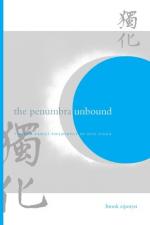|
This section contains 799 words (approx. 3 pages at 300 words per page) |

|
A champion of the Learning of the Mysterious (Xuanxue) or neo-Daoism that gained prominence in third-century China, Guo Xiang (c. 252–312 CE) is best known for his commentary to the Zhuangzi, which offers to reconcile orthodox teachings (mingjiao) with Daoist naturalness (ziran).
Like other neo-Daoist philosophers, notably Wang Bi (226–249), Guo recognizes the creative power of Dao; however, contrary to Wang, Guo rejects that "beings originate from nonbeing," which establishes Dao as the metaphysical ground of being (Zhuangzi commentary, chs. 2 and 23). The appeal to an anthropomorphic heaven or original substance as the source of creation should, according to Guo, be rejected, for it begs the question of the cause of its own being. Nonbeing, however, is not the answer, because nonbeing remains an abstraction and abstractions cannot bring about creation. Being and nonbeing are mutually exclusive, according to Guo, who writes "nonbeing...
|
This section contains 799 words (approx. 3 pages at 300 words per page) |

|


